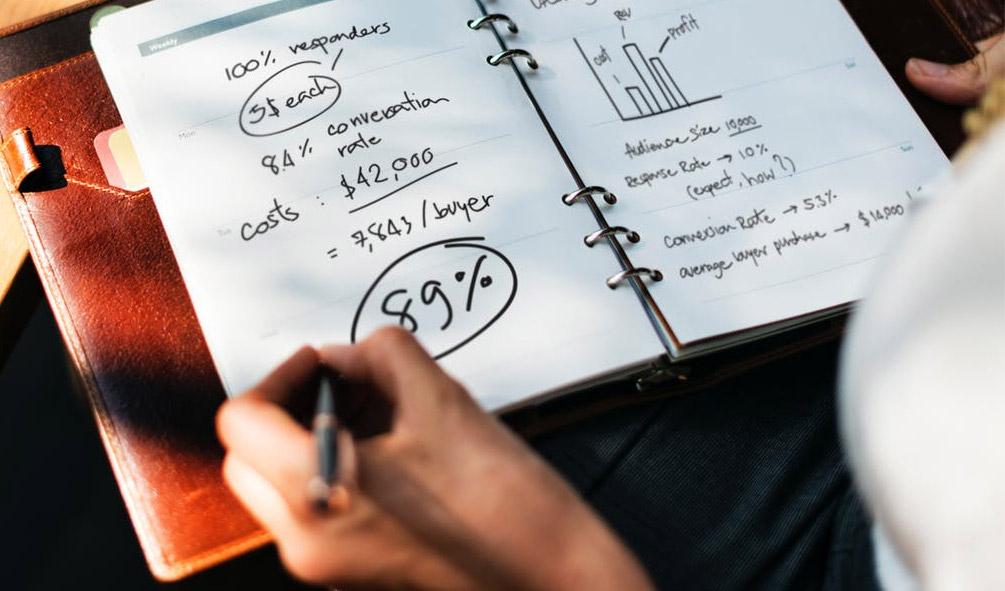Contents
How does VAT funding work?
Businesses are required to submit a VAT return to HMRC every 3 months. Sometimes the cost of the VAT tax bill will leave some businesses without money to continue operating. VAT financing breaks down the lump sum into monthly payments, which eases pressure on a business’ cash flow.
Why do businesses apply for VAT funding?
Businesses often apply for VAT funding if they are concerned that they may not have a sufficient amount of working capital available following the payment of their VAT bill. This can occur if a business has not correctly prepared for an upcoming bill; has recently been hit by an unexpected expense, or has had a slow quarter.
VAT Financing allows a business to spread the cost of a VAT payment over three months, which means that more working capital is available for the business.
Do I have to fund my entire VAT bill?
No, VAT funding can be used to part-fund your VAT bill. The loan itself is flexible and you’re not obliged to fund the fall amount if you don’t want to. Ultimately, it is down to the business owner to determine how much funding they need for their company.

What is VAT?
Value Added Tax (VAT) is a tax that is applied to the sales of goods and services. VAT is only applicable to businesses that are registered for VAT. Companies need to register and start paying VAT once their VAT taxable turnover is more than £85,000.
If VAT registered, businesses are required to submit a VAT return to HM Revenue and Customs (HMRC) every 3 months (quarter), otherwise, they could face penalties. For more information regarding the rules around VAT, you can check the government website.
Rates of VAT in the UK
| Rate type |
% of VAT |
What the rate applies to |
| Standard rate |
20% |
Most goods and services |
| Reduced Rate |
5% |
Some goods and services |
| Zero rate |
0% |
Food and childrens clothes |
When are VAT returns due?
VAT returns usually need to be filed every three months, with the payment needing to be completed within 1 month and 7 days following the VAT return being filed. Therefore, the VAT return deadline can vary from business to business. To check your VAT returns and payment deadlines make sure to view your VAT online account.
How to submit a VAT return
You can submit your VAT return online via the government portal. In some cases you may be exempt from submitting your VAT return online, and can use other methods such as paper filing instead.
What happens if I do not pay my VAT?
It is the responsibility of the business to ensure that they make their VAT return payments on time. If a business does not repay its VAT on time there is no penalty, but it will be issued with a surcharge liability notice. If you fail to pay your VAT again, you will face a penalty charge. Penalty charges can accrue and will negatively impact a business, especially businesses that are struggling.
What are the benefits of VAT funding?
- Quick turnaround, decisions within 24 hours
- Minimal red-tape / information required to process application
- Facility set up on a rolling basis – creating peace of mind
- Payment direct to HMRC if required
- Separate from existing bank facilities
- Dedicated Account Manager handing application from start to finish
- Low-interest funding available from 2% flat
- Funding available for VAT arrears
Why do businesses spread their VAT payment?
- Managing cash flow: Very few businesses invoice quarterly, with most income being derived monthly or via contracts. A quarterly ‘lump sum’ can go against how most businesses’ cash-flow operates, which is inconvenient when running a business. Being able to split one large payment into monthly payments can help make the VAT bill much easier to handle.
- Focus on growing the business: Some larger VAT payments can mean that money is not spent on key areas of the business. This can delay possible investment opportunities such as hiring new staff or securing valuable contracts. Spreading the cost of a VAT payment can help balance the cash flow in a more constructive way for a business.
- Seasonal cash flow: As VAT is calculated on historical trading performance, this can be problematic for seasonal businesses. A hotel that may be busy during the Christmas period, would have a large VAT bill that they would have to pay around February, which is their quietest time of year.Paying a large VAT bill in one sitting when the business is not generating a stable amount of cash flow leads to bad cash management. Spreading the cost of a VAT bill over a period of three months would allow the business to manage its cash flow more effectively.
- Protect cash reserves: During quiet periods of trading, it may be more sensible to use VAT funding rather than drawing from cash reserves that are used to cover emergencies. If you spend a business’ cash reserve on paying a VAT bill, but are then hit with a large unexpected expense, this can generate more problems.
- To meet VAT payment deadlines: If a business is unsure it is going to pay VAT in time, then they may spread the cost of the VAT payments in affordable monthly payments. This can ensure that a business doesn’t accrue any penalties from HMRC for failing to pay VAT on time.
How can I apply for VAT funding?
To enquire or apply for VAT funding, you can request a quote using the online contact form or you can call JPM Capital Finance at 01244 207276. Depending on how you contact us, you will be put through to one of our credit brokers who will discuss the VAT funding options available to you.
How long does it take to process an application?
Applications for a VAT loan can take between 24 – 48 hours. Once the loan application is approved, an e-sign document is used to complete the application form. When the document is signed, the funds are transferred the same day.
VAT funding breakdown
| VAT Funding |
Details |
| How long can I borrow for? |
Up to 3 monthly instalments |
| How much can I borrow? |
Borrow from £5,000 with no upper limit |
| What is the rate of interest on VAT funding? |
Low-interest VAT funding available from a 2% flat rate. |
| Does it cost money to apply for a loan? |
It does not cost money to apply, but some funders may charge a nominal fee. |
COVID-19 VAT deferral scheme and VAT funding.
What is VAT deferral?
Between 20 March 2020 – 20 June 2020, the Government granted businesses to defer their VAT payments to support businesses’ cash flow on account of the pandemic.
For businesses that deferred their VAT payments, the deferred VAT must be paid in full before or on 31 March 2021 or join the VAT deferral new payment scheme between 23 February 2021 – 21 June 2021. The new payment scheme is designed to repay deferred VAT payments in equal instalments, interest-free, over 2021/2022.
How can I get VAT funding to help with the new deferred VAT payment scheme?
JPM Capital now directly provides unsecured facilities which can be used to help spread the payment costs of the new deferred VAT payment scheme. For more information about the bespoke funding solution being offered, please get in contact with us via the contact form at the bottom of the page or call us on 01244 207276.
What should I do if I can’t pay my VAT Tax bill on time?
The first action you should undertake if you know that you are unable to pay your VAT bill on time is to contact HMRC. HMRC offer support to business owners who cannot pay their tax bill on time, such as providing the business more time to pay the bill or organising a ‘Time to pay’ arrangement.
However, you should never expect that HMRC will grant you support, especially if HMRC believes you have the means to pay your tax bill. If HMRC believes that you can pay your VAT on time, they will ask you to pay the bill immediately. Failure to pay may lead to ‘enforcement action’ to gain the money from you.
What should I do if HMRC wants me to pay my bill immediately?
If HMRC requires you to pay your VAT bill immediately, this is when you may want to consider applying for VAT funding. It is especially the case if you believe the VAT bill payment is going to have a large impact upon your cash flow.
If you wish to pay your VAT bill in full by the 31st of March 2021, you can contact JPM Capital and we will advise you on your VAT payments. Our specialist VAT funding facility can help turn your quarterly payment into monthly arrears. If you have any queries or issues regarding VAT funding and deferred VAT payments due to COVID-19, our experienced team is at hand to answer your questions.
Why should I apply for VAT funding with JPM Capital Limited?
JPM Capital has recently become a direct lender, allowing us to help businesses secure the commercial funding that they need. We help provide unsecured facilities to help businesses spread the cost of VAT bills into monthly payments.
Furthermore, JPM Capital Finance Limited is authorised and regulated by the Financial Conduct Authority (FCA) ensuring that we meet industry standard compliance. We are
What other products do JPM Capital broker?
JPM Capital provides a wide range of funding solutions for a variety of business types. Some of our most popular finance products include:
You can find our full range of finance products on our funding solutions page.
How much can I borrow?
VAT funding begins at £5000 and has no upper limit. However, for businesses whose quarterly VAT payment exceeds £1,000,000 would move to a ‘Payment on Account’.
What is VAT Funding?
VAT funding is a form of business financing used by businesses to cover the cost of quarterly VAT return payments over a period of months. It is typically taken out to help businesses that are concerned that a VAT payment may be detrimental to their business’ working capital.





